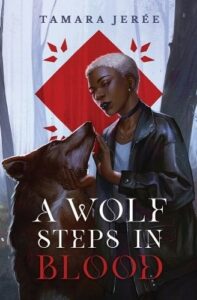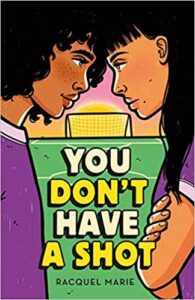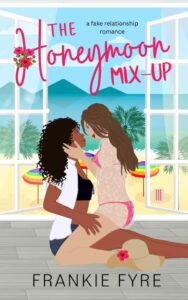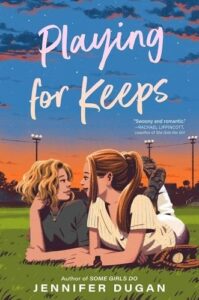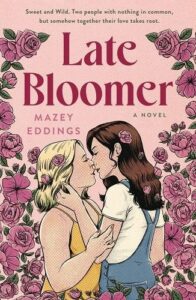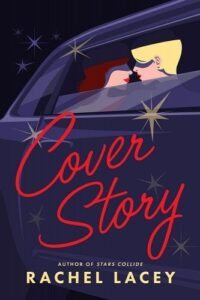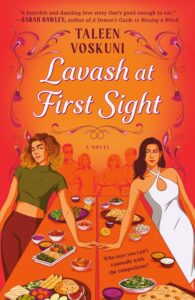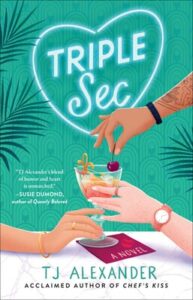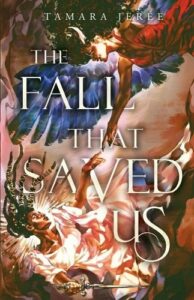Buy this from Bookshop.org to support local bookstores and the Lesbrary!
“We are the figures of each other’s fairytales made flesh.”
– A Wolf Steps in Blood, page 22
Last October, I reviewed Tamara Jerée’s debut novel, The Fall That Saved Us, a romance between a former demon hunter and a succubus. As that was a favorite of the year, I couldn’t wait until Halloween to read their latest paranormal romance, A Wolf Steps in Blood.
Over a century ago, a witch’s blessing—seen by the protagonist as a curse—gave werewolves their power. That spell is dying with time, but Yasmine and her sister both have strong abilities despite their mother lacking the ability to shift. None of them have ever met a witch, until Kalta, a blood witch who is on the run from her coven, crashes into Yasmine’s life. Though Yasmine isn’t sure if she can trust Kalta, it becomes clear that Kalta is her fated mate. While it’s expected for wolves to have soulmates, she was never expecting hers to be a witch, prompting the idea that the burgeoning couple could usher in a new age for werewolves.
As a Black lesbian werewolf in a rural town, Yasmine has been ostracized on multiple levels. After watching how her sister has been treated, she has internalized the idea that she needs to minimize herself rather than embrace her instincts, to the extent that she treats her inner wolf as a separate entity to be resented and feared. Additionally, she struggles with an eating disorder, and she generally feels stuck in a life where she tries to live on the down low.
Meeting Kalta is a catalyst for her to finally explore her identity and embrace her own hunger. For her part, Kalta struggles with how her coven has treated her and her brother. While this book is more focused on the wolves, the glimpses we got into witch society and how it has impacted Kalta, and her arc in relation to this and her grief, were some of my favorite parts of the book. I enjoyed her whimsical, impulsive attitude, which made her a fun foil for the more reserved protagonist.
As with the author’s past work, the writing manages to be both concise and atmospheric, raw and sentimental, bloody and healing. The intensity suits a whirlwind paranormal romance, drawing the reader into the character’s emotions while allowing for more quiet, intimate moments as well. I also continue to appreciate the way the author writes about darker topics, with a focus on characters healing from trauma. Their romances are as much about the characters learning to care for themselves as each other, with these concepts very much intertwined.
Despite knowing that this would be a novella with a fast burn fated mates romance, I still struggled a bit at the beginning with how fast the characters and relationship were introduced. Even a little bit more development in the beginning would have helped me get invested sooner in the characters and their bond. Additionally, some of the setup made me wonder how wide in scope the story would be, with the talk about the communal fate of werewolves; with shorter works, I generally anticipate a narrow scope. By the end, I was satisfied with where things ended up, and I also grew invested in the characters and story as it developed, especially in the second half.
If the idea of a fast burn paranormal romance novella about feral women appeals to you, especially if you like themes of family, grief, and community, then I recommend this book. If you’re more interested in a longer novel with more breathing room, then I recommend checking out the The Fall That Saved Us first, and coming back to this one for more of Tamara Jerée’s writing.
Content notes taken from the book: This book contains depictions of an eating disorder, vomiting (blood, food), self-harm (blood magic), gore, animal death, grief, and sexual content.

